About This Quiz
For millions of years, Earth has been growing one pretty impressive garden.
Whether it be bunches of cacti baking beneath the sun, fragrant flowers blooming in colorful fields, or the thousands of acres of trees towering throughout forests, you'd be a-maize-d at all the different types of lush greenery this world has to offer. And as our vital source of oxygen, you could say plants are fairly important to sustaining life for not just humans, but, well, everything.
Scientists determine there are about 391,000 species of plants thriving around the world, making it quite a lot of life to keep up with even for the biggest botany buffs. While many of the world's plants are well known, each kind has its own unique characteristics for you to fern something new. Like what the fastest-growing plant on the planet could be? Or why is it that cats are so drawn to catnip? And how long does a century plant actually live? (Spoiler: it's a lot shorter than you might think).
There is so much to discover about the world's abundance of natural gems. So, wood you be up for the task for naming these 40 plant species in five minutes or less? Test your mental green thumb and challenge yourself to find out how much you really grow about plants!
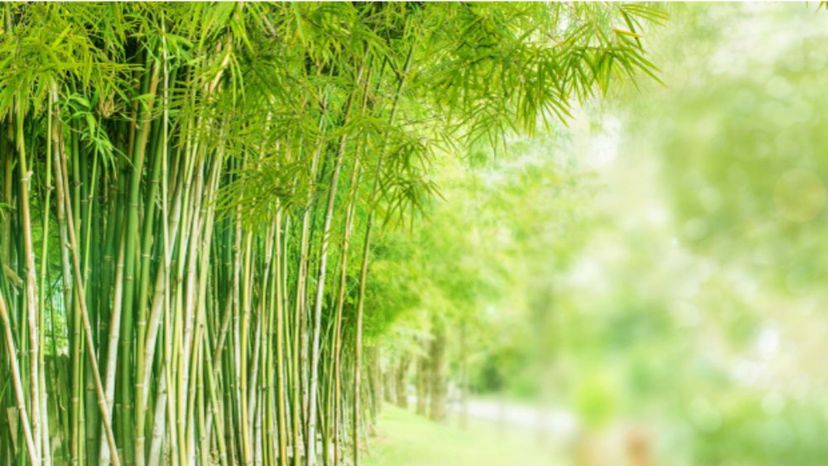
As the fastest-growing plant in the world, bamboo can grow to reach nearly three feet in just 24 hours. Compared to other plants, bamboo releases more oxygen and takes in more carbon dioxide.
Different colored roses have different meanings in human society. For instance, a pink rose is the symbol of joy while a white rose is the symbol of purity. In the wild, roses have five petals, so commercial roses with more petals are due to a mutation.
Chrysanthemums are tropical flowers that are native to Asia and parts of northeastern Europe. Their name comes from the Greek words "chrysos" meaning gold and "anthemon" meaning flower.
Advertisement
The azalea plant typically blooms in May or June, with the flowers' main three colors being pink, white or orange. While it may only bloom for a few weeks out of the year, an azalea plant can continue to grow for many years.
There are six different species of aspen, which grow in all sorts of environments (so long as it's sunny!). The average height for an aspen is 65 feet, though it can reach as tall as 98 feet.
It is thought to be bad luck to cut down a holly tree, which is said to ward off evil spirits and witches. Holly is one of the few plants to flourish during winter, with deep green leaves and bright red berries coloring the plant.
Advertisement

Catnip is native to Europe and belongs to the same family as mint. The chemical in catnip, nepetalactone, is what causes a feeling of euphoria for cats and has a similar effect to what a hallucinogenic drug does for humans.
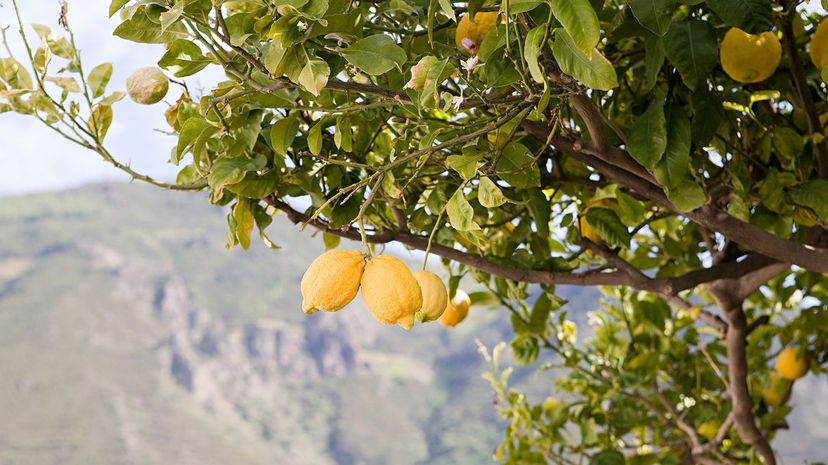
Lemon trees are native to Asia, though today they grow all over the world. One lemon tree can produce nearly 600 pounds of lemons annually. Aside from the fruit it produces, the leaves of a lemon tree can be used to make tea.
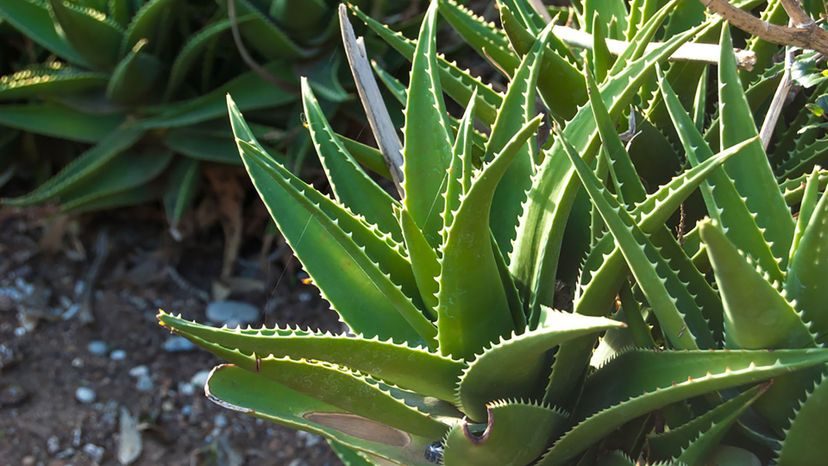
Aloe vera is a succulent plant that grows to yield very thick leaves filled with a fleshy-like substance. Aside from just soothing sunburns, aloe vera can help reduce dental plaque, lower blood sugar, prevent wrinkles and much more.
Advertisement
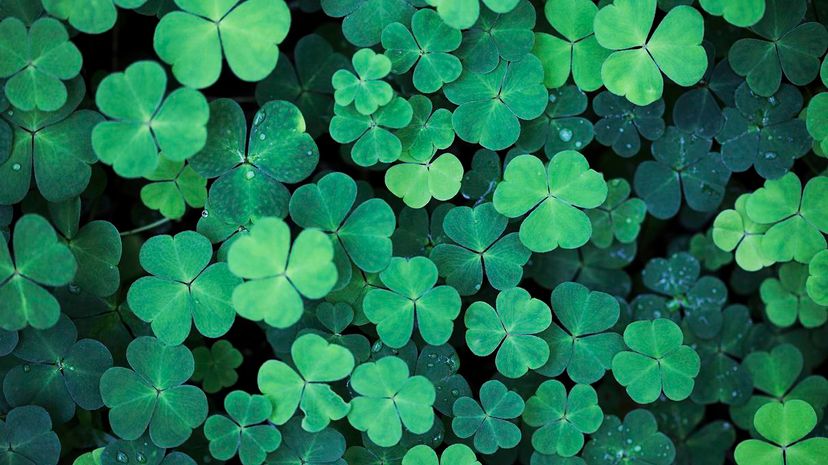
A four-leaf clover is a well-known symbol for luck, and during the Middle Ages it was even believed to have attracted fairies. The leaves of a four-leaf clover are said to stand for hope, faith, love and of course, luck.
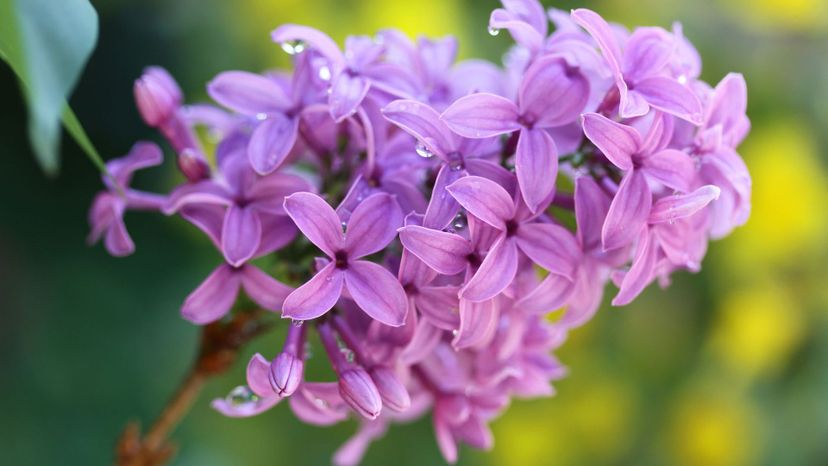
A purple lilac's fragrance is dependent on several factors (the time of day, stage of bloom and temperature it's growing in). A purple lilac smells its best when it's warm and sunny outside and the plant's florets are completely open.
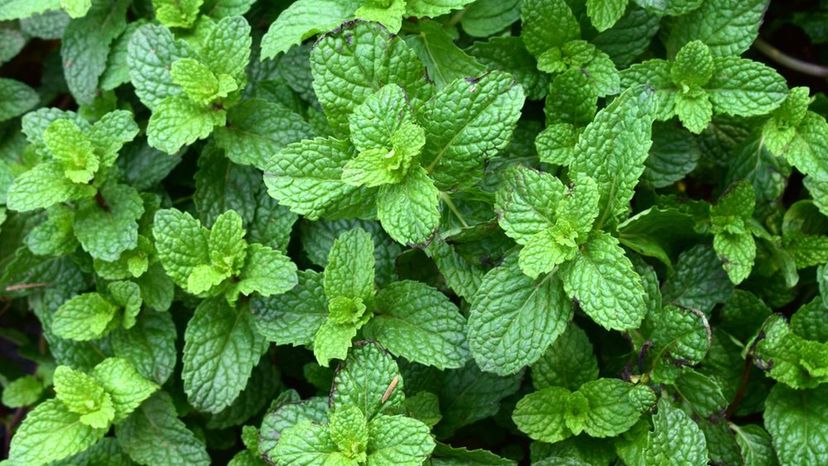
There are 18 species of mint, with the three most common types being peppermint, spearmint and apple mint. Outside of fresh breath, mint offers a variety of health benefits, including headache relief and improved digestion.
Advertisement
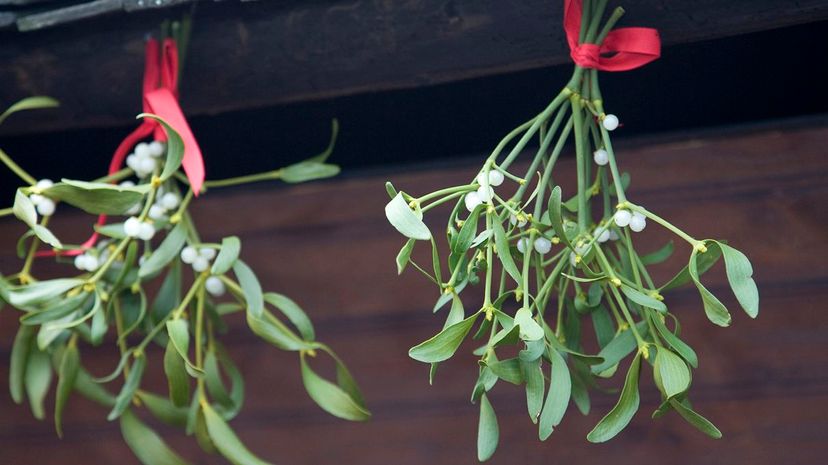
Mistletoe is commonly known as a holiday symbol, and lovers are supposed to kiss when standing below the plant. While some animals benefit from the plant's berries and leaves, mistletoe is toxic to humans, so limit your contact to standing safely underneath!
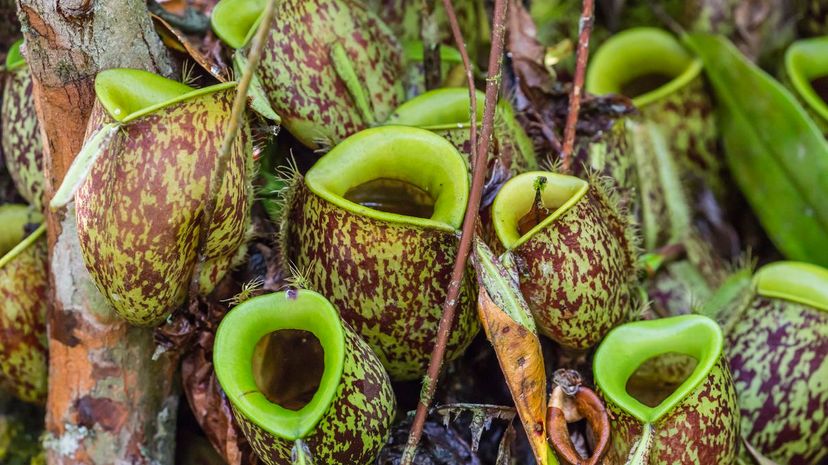
As one of the few species of carnivorous plants, pitcher plants get their nutrients from insects instead of from the soil they're rooted in. The largest types of pitcher plants are big enough for rats to get caught in.
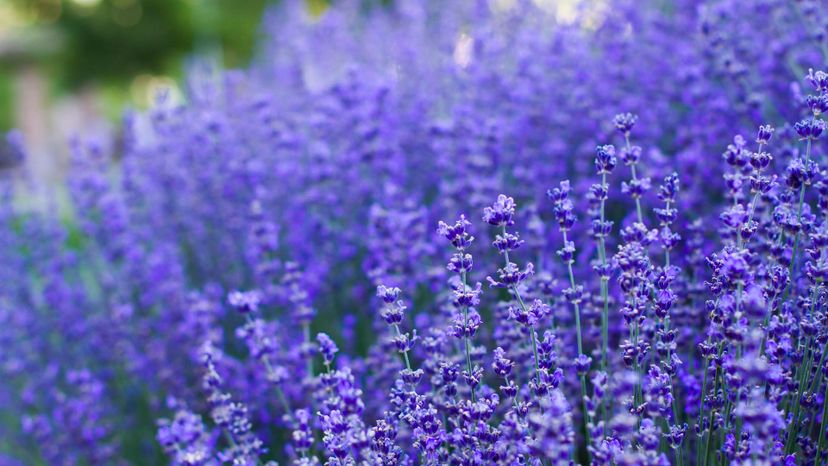
Known as a disinfectant and for its antiseptic properties, lavender was commonly used as a cleansing agent in ancient Rome during bathing rituals. While most of these plants are blue or purple in color, some can be yellow or pink.
Advertisement
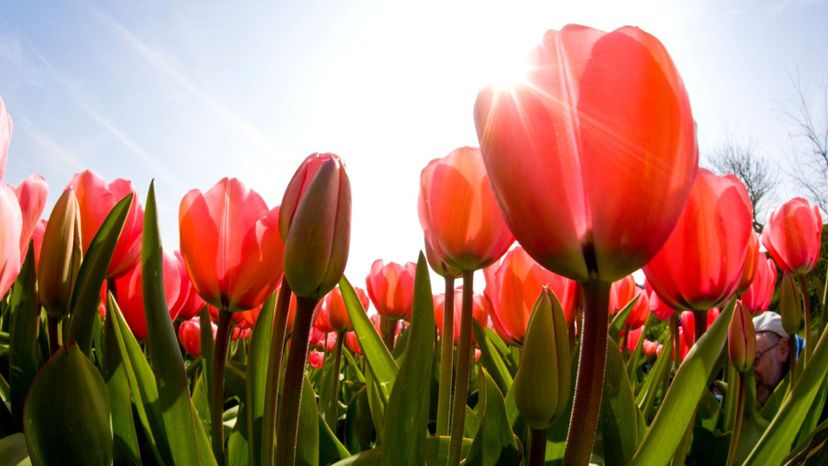
The world's largest producer of tulips is the Netherlands, and the country even has an annual festival for the flower. Tulips were once the most expensive flower, with the years between 1634 to 1637 marking a period known as "Tulip Mania."
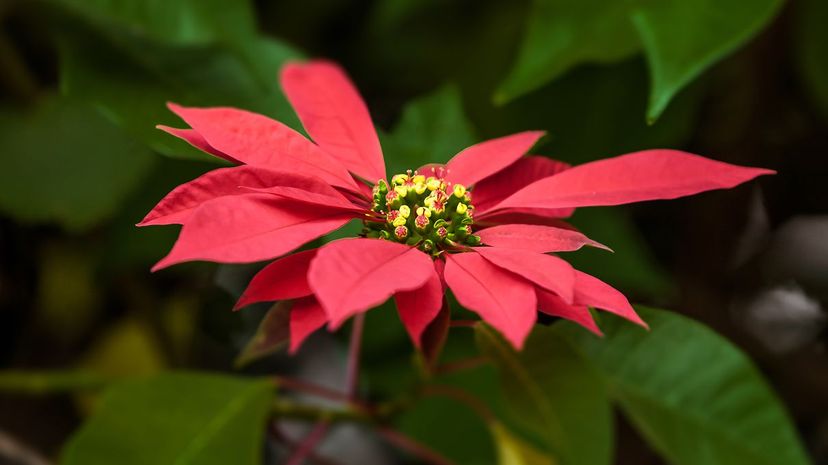
The plant was first introduced to the U.S. after being brought from Mexico. The leaves of the poinsettia are commonly mistaken to be the plant's flowers, though they are actually colored bracts, or modified leaves.
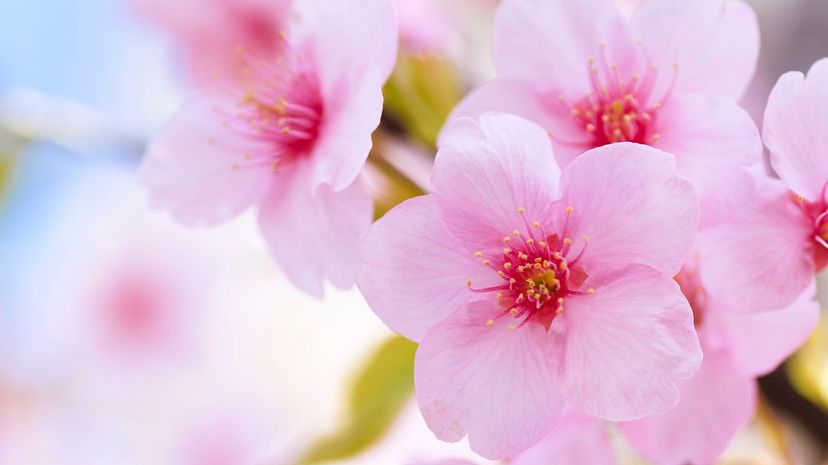
Cherry blossoms are the national flower of Japan, with one tradition being to have a picnic under these trees. Each year, the blooming of cherry blossoms celebrates the welcoming of spring.
Advertisement

More than 2,500 species of palm trees grow all over the planet. Colombia's national tree is the Quindio wax palm, which is known for growing to staggering heights of nearly 200 feet tall.
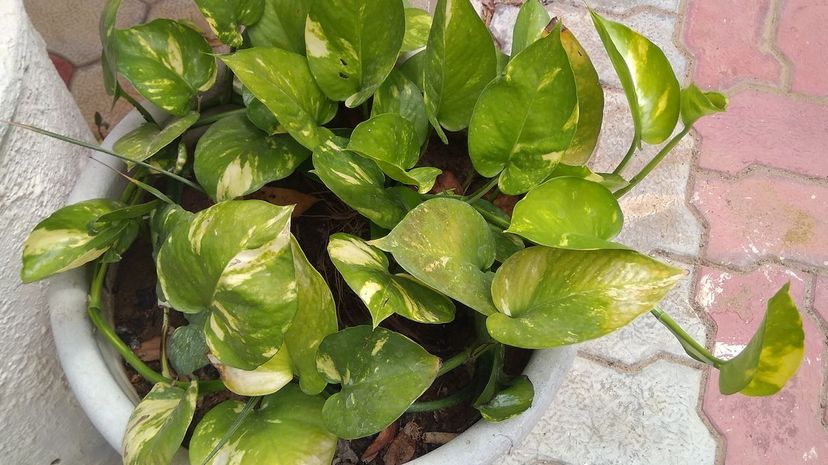
As a common symbol of good luck, this house plant is believed to bring financial prosperity to the individual who cares for it. The other name for the money plant is "Devil's Ivy."
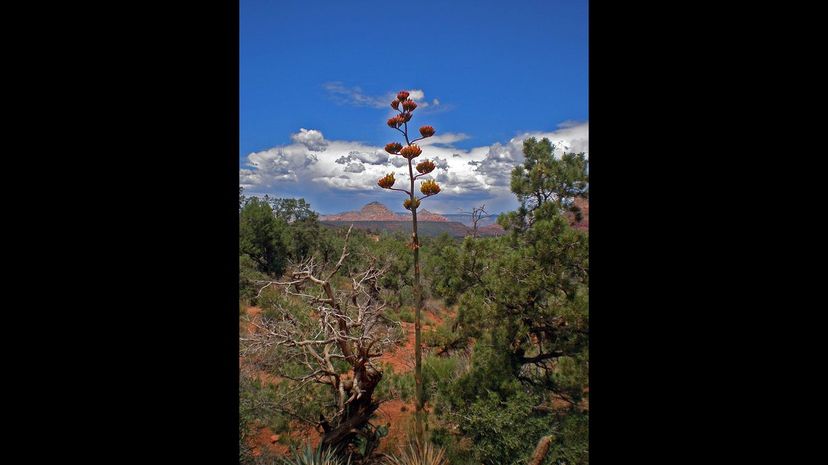
The century plant is native to areas across the southern U.S. as well as parts of Mexico. While the name implies otherwise, the majority of century plants typically don't live beyond 30 years.
Advertisement
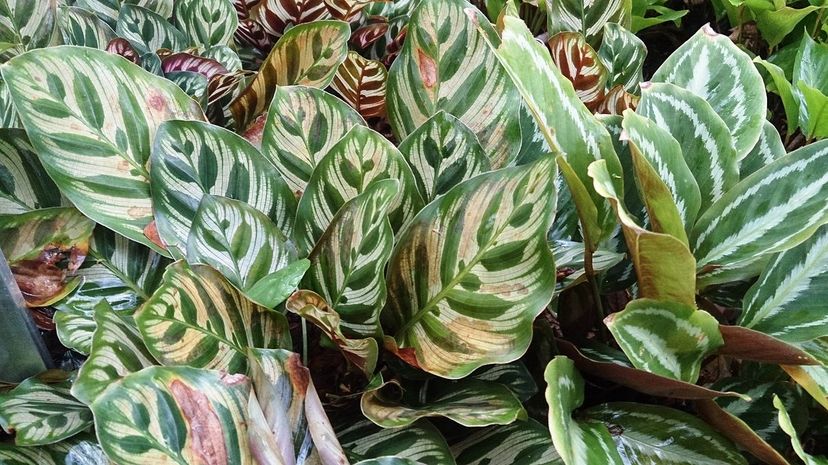
The peacock plant comes from Brazil and is also known by the name "Cathedral Windows." Peacock plants are commonly grown indoors, with the plants' beauty and success inside making it a staple for any house plant owner.
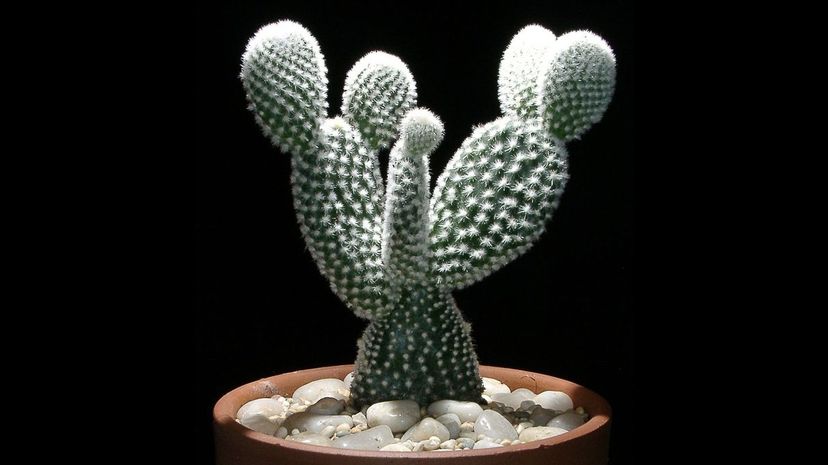
Bunny ears cactus plants are covered in short fuzzy-looking bristles, which resemble rabbit's fur and even grow in pairs like the animal's ears. Another name for the bunny ears cactus plant is "angel's wings."
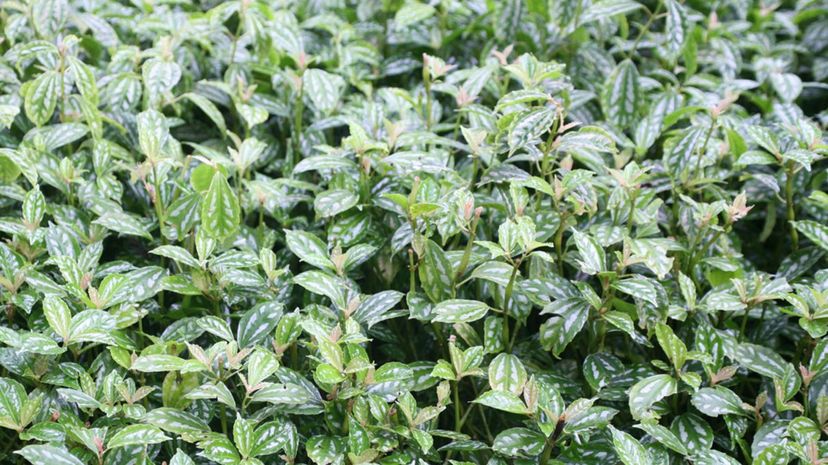
The aluminum plant is a commonly cared-for species of house plants, with one of its appealing qualities being it's easily grown. Another name for the aluminum plant is "watermelon pilea."
Advertisement
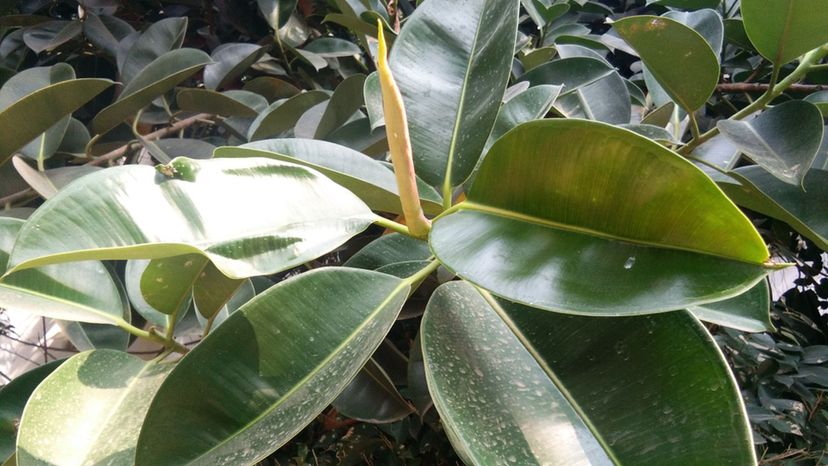
Once mature, rubber tree plants produce a latex sap that's a milky-white color. A Billboard Top 100 song in 1961, the catchy jingle "High Hopes" by Frank Sinatra is about a rubber tree plant.
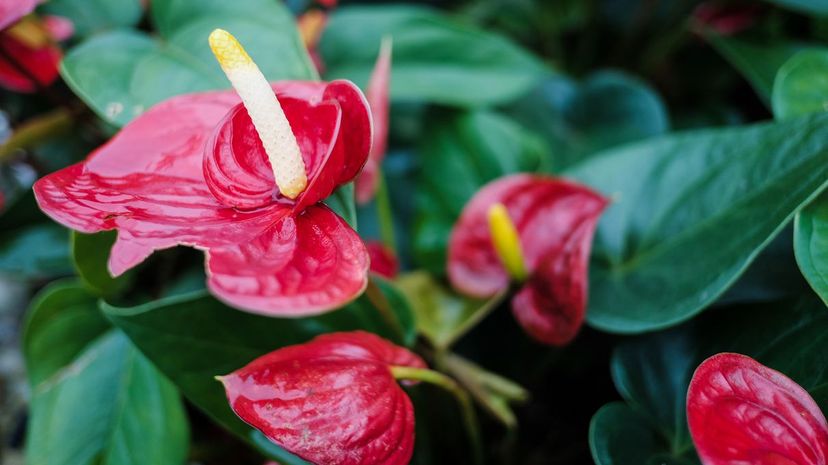
The flamingo flower plant belongs to the anthurium species. While you likely won't find this vegetation standing on one leg, the plant's heart-shaped white, pink or red flowers give it a similar color to the flamingo bird.
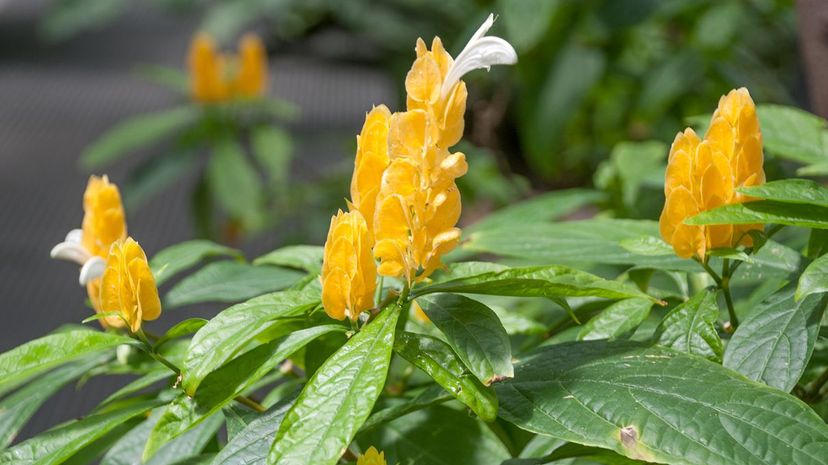
Lollipop plants typically grow to be about four feet in height, with stalks of bright yellow flowers decorating the plant. Another name for the lollipop plant is "the golden shrimp plant," as its bracts are often thought to look like shrimp.
Advertisement
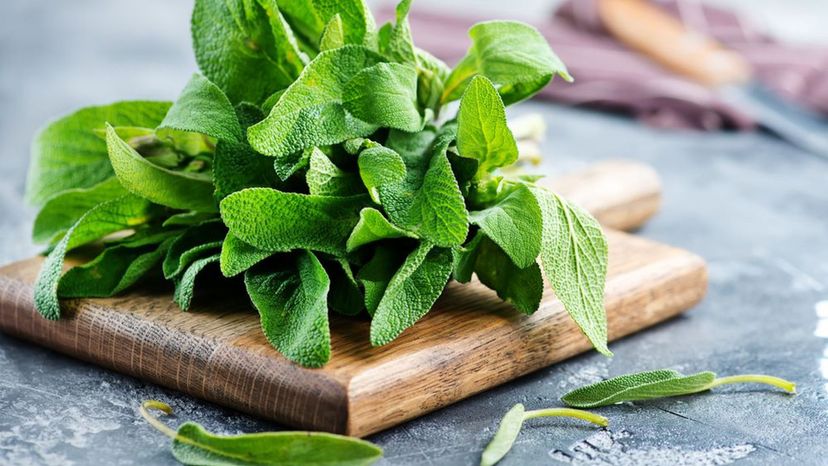
Sage is commonly used all over the world as a spice and remedy, with the plant's healing properties being used for thousands of years. As a spice, sage adds a savory, peppery flavor when paired with food.
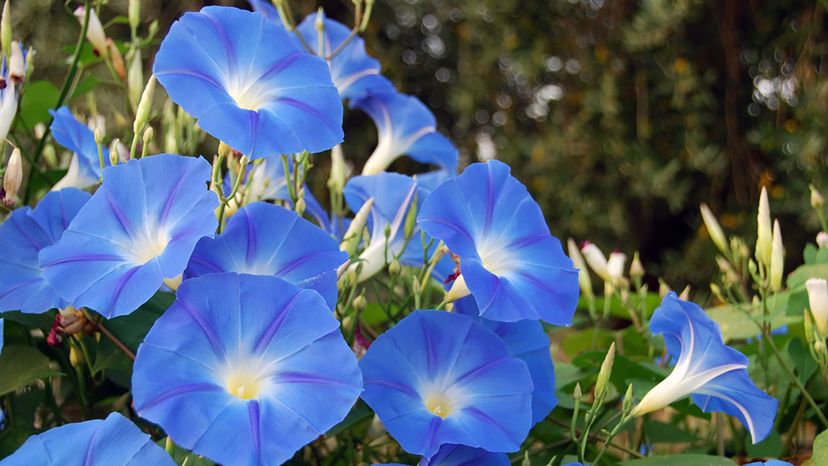
The morning glory gets its name from the peculiar opening of its flowers during the morning and closing them by afternoon. Morning glory flowers are popular meal choices for hummingbirds and butterflies.
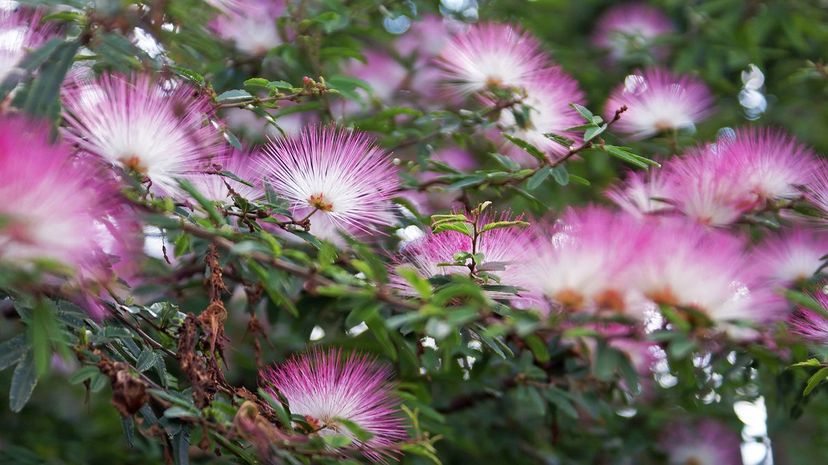
The flowers of a silk tree are either pink or white and look like small pom-poms. The silk tree has been nicknamed the "sleeping tree," with the plant's leaves closing during the nighttime and whenever it rains.
Advertisement
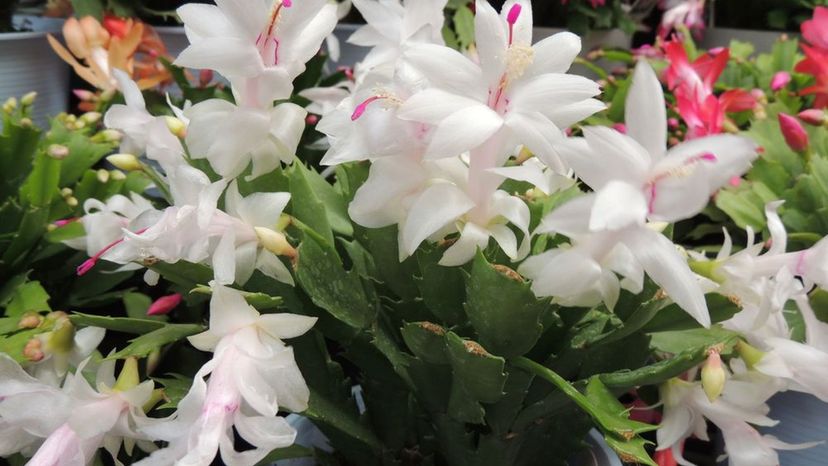
While other species of cacti may thrive in hotter temperatures, the Christmas cactus grows best in cooler environments. The Christmas cactus is native to Brazil, and it can survive for up to 30 years.
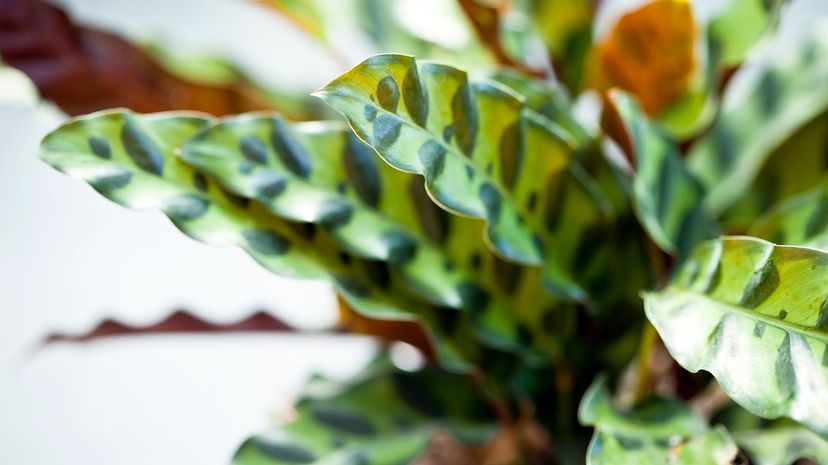
As a native to Brazil, the rattlesnake plant thrives in warm, moist environments, such as the rainforest. A rattlesnake plant's leaves can grow to reach more than 30 inches in height.
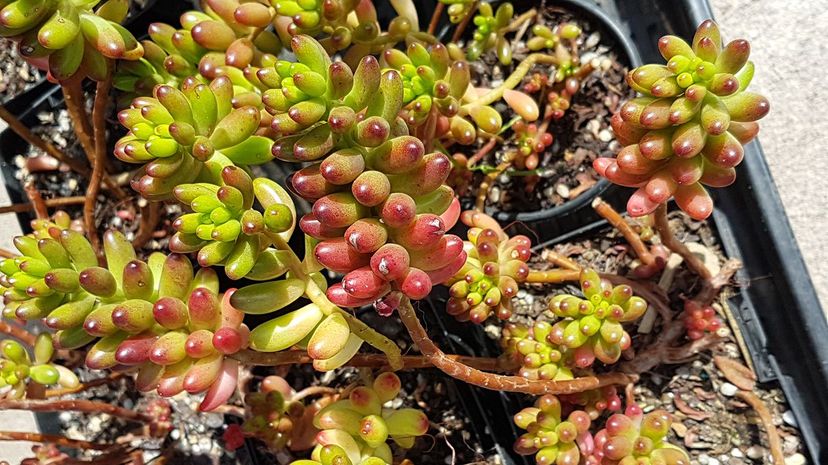
Jelly bean plants have leaves the shape of--you guessed it--jelly beans, which stay green in the shade and turn red in full sunlight. The jelly bean plant is native to Mexico, with two of its other common names being "Pork and Beans" and "Christmas Cheer."
Advertisement
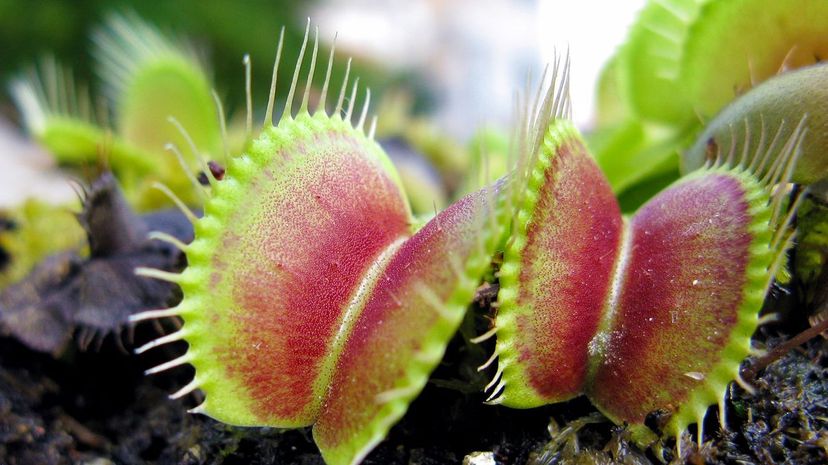
Venus flytraps capture prey (feeding on insects), and the digestion process can take as long as 10 days. A Venus flytrap can only open and reclose itself roughly six times during its life.
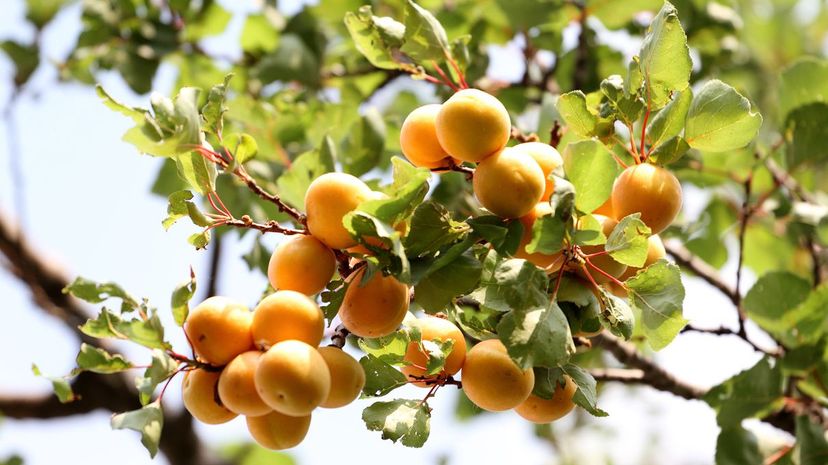
Apricot trees have been around for more than four centuries, and the apricot fruit is a relative of peaches. In the U.S., California produces nearly 95% of apricots across the country.
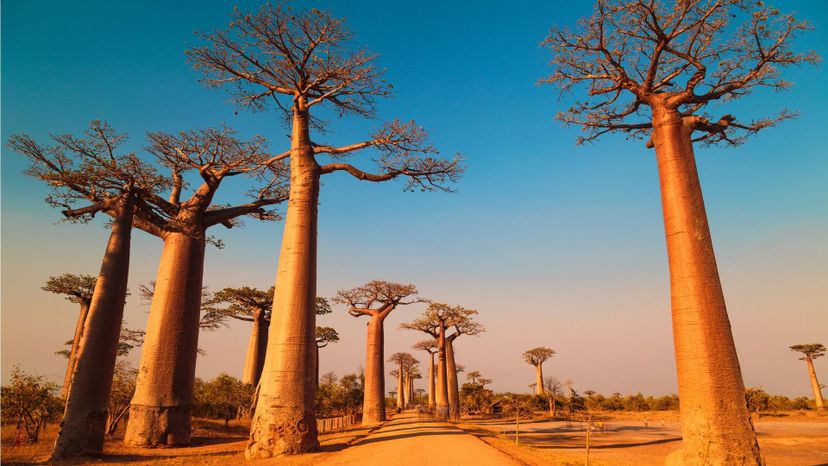
There are nine different types of baobab trees. The baobab is known for its incredibly lengthy lifespan, with some of these trees aged over 1,000 years (one in South Africa was found to be about 6,000 years old!).
Advertisement

Kudzu are native to Japan and China. Kudzu is known for its speedy growth, with the plant able to grow nearly one foot every day. It's no question how kudzu got the nickname "mile a minute vine."
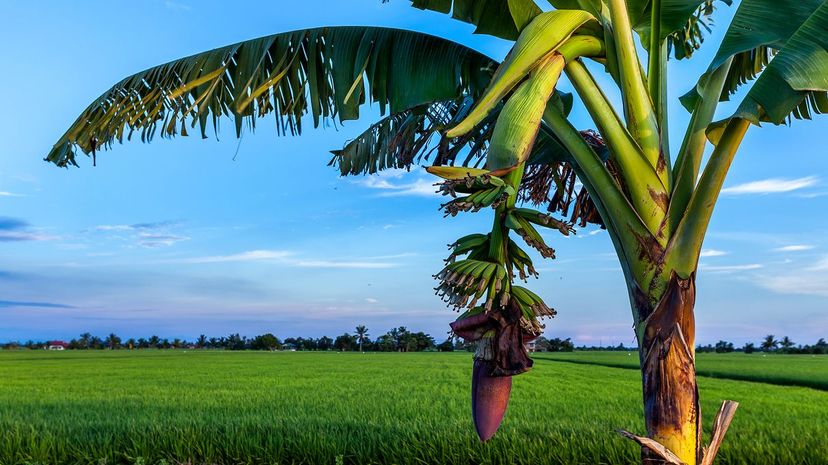
Banana plants are actually a type of herb instead of a kind of tree. Bananas are made up of roughly 75% water, and while yellow may be the most well-known color, some grow to be other colors (such as red).
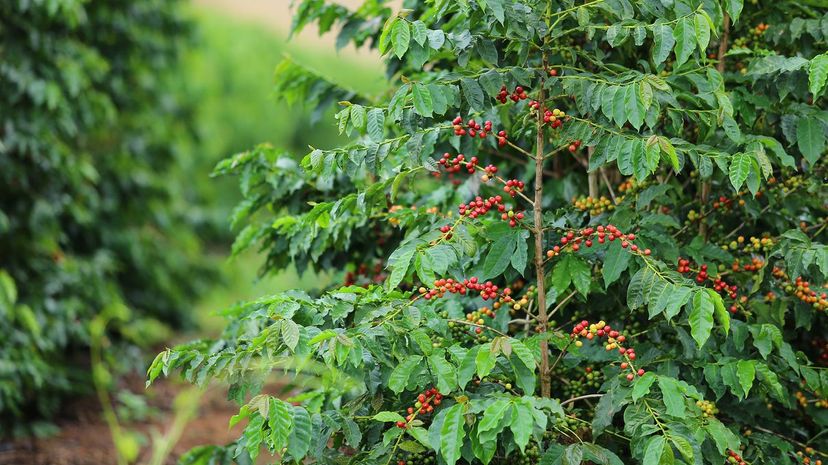
After oil, coffee is the next most valuable raw material to be bought and sold internationally (with roughly $2 billion of coffee traded annually). A coffee plant can live to be as old as 100.
Advertisement
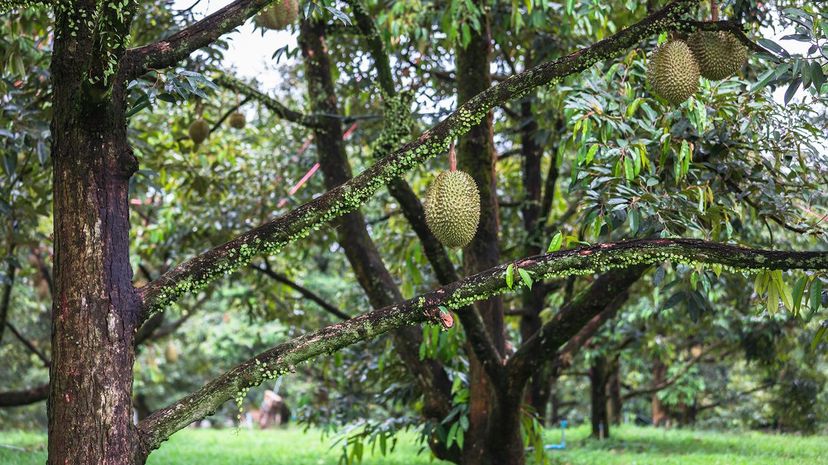
When the fruit of this tree ripens, it falls off and is ready for consumption. Durian fruit offer many health benefits for humans (if you can get past the smell, that is!), including being a great energy source and even helping to lower bad cholesterol.